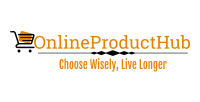In recent years, the landscape of medical education has undergone a significant transformation, with the emergence of online platforms revolutionizing the way aspiring healthcare professionals learn and acquire knowledge. These online medical education platforms offer a plethora of benefits, ranging from flexibility and accessibility to cost-effectiveness and interactive learning experiences.
Evolution of Medical Education
Traditional medical education has long relied on in-person lectures, textbooks, and hands-on clinical training. However, with advances in technology and the increasing demand for flexible learning options, these medical education platforms have gained traction. These platforms leverage digital tools and resources to deliver high-quality educational content to students worldwide.
Advantages
Flexibility and Convenience
One of the primary advantages of these medical education platforms is the flexibility they offer. Students can access course materials and lectures at their convenience, allowing them to balance their studies with other commitments such as work or family responsibilities.
Cost-effectiveness
Compared to traditional medical schools, which often come with hefty tuition fees and additional expenses, these education platforms are more affordable. Many offer free or low-cost courses, making medical education more accessible to individuals from diverse socioeconomic backgrounds.
Access to a Wide Range of Resources
These platforms provide access to a wealth of resources, including lectures, textbooks, research articles, and multimedia content. This diverse array of materials enables students to explore topics in-depth and engage with the latest advancements in healthcare.
Popular Online Medical Education Platforms
Several online platforms cater to medical students and professionals alike, offering courses on various subjects ranging from anatomy and physiology to pharmacology and pathology. Some of the most popular platforms include Khan Academy, Coursera, edX, and Lecturio.
How these Medical Education Platforms Work
These platforms employ various teaching methodologies to deliver engaging and interactive learning experiences to students. This includes interactive lectures and tutorials, virtual labs and simulations, and discussion forums for peer-to-peer learning and collaboration.
Challenges in Online Medical Education
Despite their numerous benefits, these platforms also face challenges. Ensuring quality and accreditation, providing hands-on clinical training, and addressing digital divide and accessibility issues are some of the key challenges that need to be addressed. Quality assurance mechanisms must be implemented to maintain the integrity of online medical education programs and ensure that they meet established standards of excellence. Additionally, hands-on clinical training poses a significant challenge for online platforms, as it is essential for medical students to gain practical experience in a clinical setting. Efforts are being made to incorporate virtual simulations and augmented reality technologies to bridge this gap and provide students with realistic clinical experiences. Furthermore, accessibility issues such as internet connectivity and device compatibility must be addressed to ensure that all students, regardless of their geographical location or socioeconomic status, have equal access to online medical education resources.
Future Trends in Online Medical Education
Looking ahead, the future of online medical education is ripe with possibilities. Advancements in artificial intelligence and virtual reality are poised to transform the learning experience, offering personalized learning pathways and immersive educational experiences. Artificial intelligence algorithms can analyze student data and provide personalized recommendations for study materials and learning activities. Virtual reality simulations allow students to practice complex medical procedures in a safe and controlled environment, enhancing their skills and confidence. Furthermore, gamification techniques such as interactive quizzes and competitions can make learning more engaging and enjoyable for students. By embracing these innovative technologies, these medical education platforms can continue to evolve and adapt to meet the changing needs of students and educators alike.
Impact of Online Medical Education on Healthcare
The widespread adoption of these platforms is expected to have a profound impact on the healthcare sector. By equipping healthcare professionals with the knowledge and skills they need to deliver quality care, these platforms have the potential to improve patient outcomes and drive innovation in healthcare delivery.
Conclusion
In conclusion, online medical education platforms have emerged as valuable tools in the training and development of healthcare professionals. With their flexibility, affordability, and interactive learning experiences, these platforms are revolutionizing medical education and shaping the future of healthcare.











